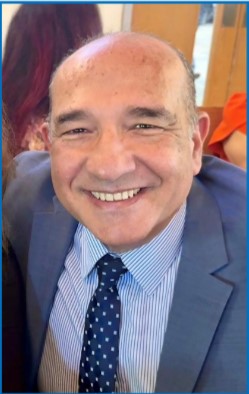Avoiding Discrimination Claims in the Hiring Process
When interviewing candidates or drafting applications, employers must avoid certain questions that could reveal characteristics protected by Title VII of the Civil Rights Act or other laws. If the candidate is ultimately rejected for the position, he or she may claim that the decision was discriminatory based upon the protected characteristic brought up in the interview. This webinar will cover the various topics and questions an interviewer should avoid as well as which questions are permissible to get the information legitimately needed.
- Which characteristics are protected by Title VII of the Civil Rights Act and other federal laws, such as the Americans with Disabilities Act and the Age Discrimination in Employment Act?
- Basic elements of a discrimination claim
- Why asking about protected characteristics in an interview could lead to a claim of discrimination?
- Why an employer’s good intentions during an interview are not relevant?
- Specific topics of inquiry which could lead to the revelation of protected characteristics
- Questions related to a candidate’s age
- Questions related to a candidate’s race
- Questions related to a candidate’s national origin
- Questions related to a candidate’s pregnancy and family caregiver responsibilities
- Questions related to a candidate’s religion
- Questions related to a candidate’s disability
- Questions related to a candidate’s genetic information
- How to ask questions for legitimately-needed information without impermissible inquiries?
- What to do if an applicant volunteers protected information
- Common mistakes on applications?
Are your hiring managers and interviewers aware of the questions which could potentially support a rejected candidate’s discrimination claim? If an applicant is asked about protected characteristics and is not selected for the position, he or she may claim that the rejection was discriminatory. This webinar will cover the areas of inquiry which should be avoided and how to get the information the company legitimately needs in order to make a hiring decision.
When making hiring decisions, employers must not reject candidates based upon their protected characteristics, such as race, color, religion, national origin, sex, pregnancy, genetic information, age, or disability. Otherwise, employers risk liability for discrimination under Title VII of the Civil Rights Act of 1964, the Americans with Disabilities Act, and various other federal and state laws. Companies may expose themselves to potential liability if they inquire into those protected characteristics during an interview or on the application. Some lines of questioning, while seemingly innocuous, may be related to those protected characteristics. Accordingly, hiring managers must be aware of all potentially problematic questions.
This webinar will teach you which areas of inquiry to avoid so that you can minimize the risk of discrimination claims in the hiring process. You will also learn how to get the information needed and how to handle situations where an applicant voluntarily discloses protected characteristics, such as pregnancy or religious affiliation.
- Human Resources (CHRO, Vice President, Director, Manager, Generalist)
- Hiring managers
- Talent acquisition personnel
- Business owners/executive officers/operations and departmental managers
- General managers/plant managers across all industries
Rebecca Jacobs is a Training Consultant and Employment Law Attorney with Rebecca Jacobs LLC. Collaborating with her clients, Rebecca develops and presents customized employee training on topics such as harassment prevention, bystander intervention, and discrimination avoidance. She also trains managers on numerous matters, including family and medical leave and disability accommodation requests.
Since 2006, she has been an adjunct lecturer for the Department of Management and Human Resources at the Ohio State University's Max M. Fisher College of Business. She teaches the "Contemporary Employment Practices and the Law" class and has recently expanded her teaching to include “Contemporary Employment Practices and the Law II.”
She has been an employment law attorney for over 20 years and tried several cases in federal and state courts, including oral argument before the Sixth Circuit Court of Appeals. She has counseled clients on numerous employment law matters and has prepared employee policies and handbooks. In January 2019, Columbus CEO magazine quoted her in “Employment Law: Making it Official with Love Contracts”. She holds a Juris Doctorate from Vanderbilt University School of Law and a Bachelor of Arts degree from the University of California, Santa Cruz. She is admitted to practice law in Ohio and licensed (inactive) in California.
Upcoming Webinars





















































